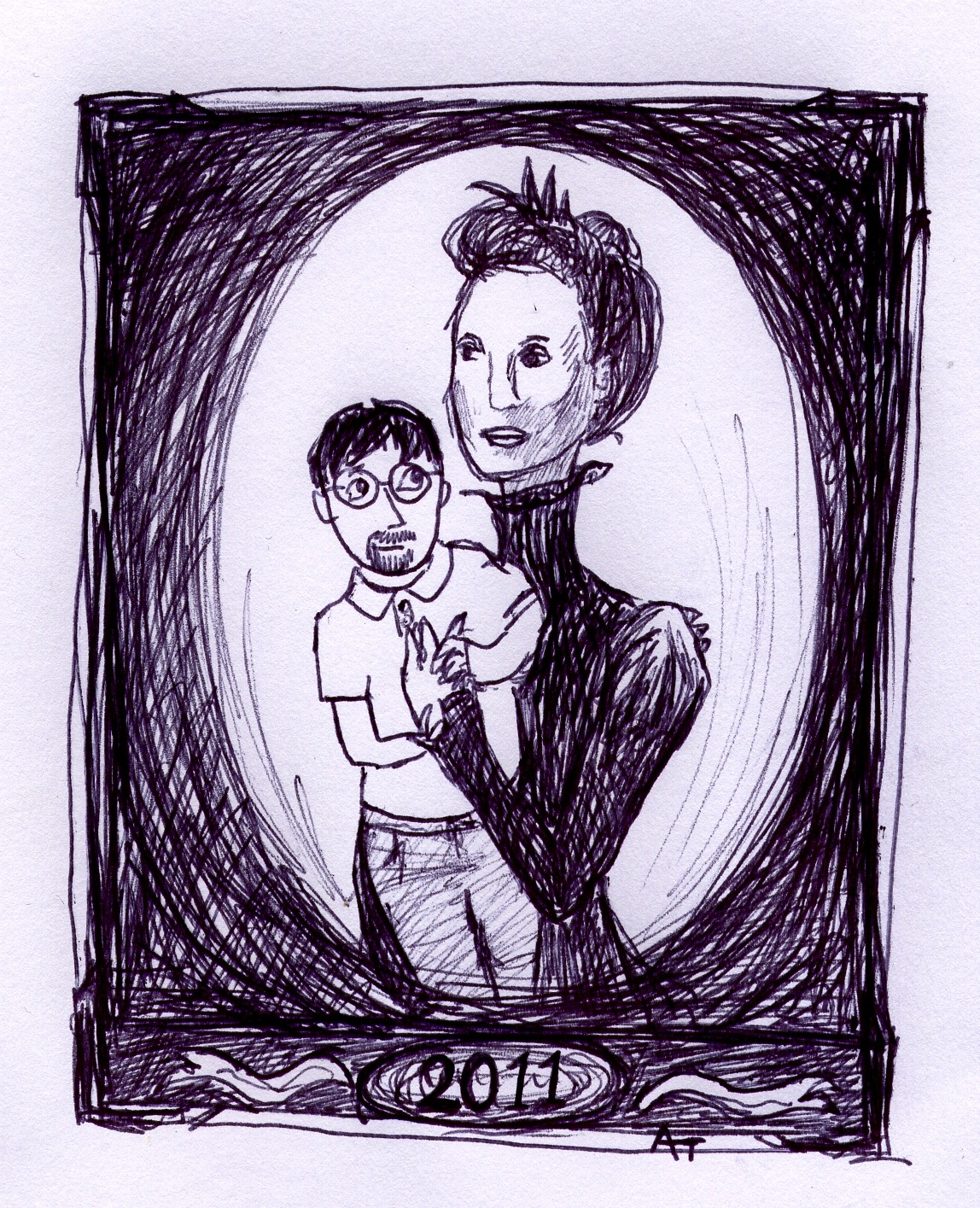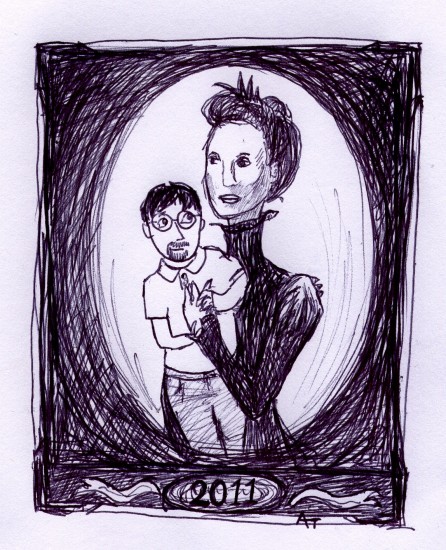Only 14% of college graduates between the years 2006 to 2010 hold jobs, 44.7% of 16 to 29 year-olds don’t work jobs, and a staggering one in four 25 to 34 year-olds still live with their parents. Against this backdrop, New York magazine’s Noreen Malone highlights the extreme optimism of America’s youth in the face of their society’s impending collapse. She discusses the thumos (the strive for glory) of American youth, the all but cliché point that “for the first time ever… this generation will not be better off than its parents,” the two “long-term social experiments conducted by our parents” that brought us all to where we find ourselves today, and the difference between a summa cum laude graduate from the Ivy League and the conformist wannabes who spent all their afternoons during high school preparing for the SATs, trying to force their way into appearing to have above average intelligence.
Here is how I presume many of you grew up. You were born in a hospital, isolated from the harsh weather conditions of the world. You were taken home, and brought into a world that— as best as you could tell— effectively revolved around you. You spent your early days in your crib playing with toy cars, surrounded by adults who would say “peek-a-boo.” Everybody wanted to play with you because you were cute. You got carried around in the snuggly, pushed in the stroller and taken to all sorts of places that seemed alien and strange like Wal-Mart, the doctor’s office and many other locations where adults mask the fact that what they do is—for the most part—depressing. Then you went to school and experienced common growing pains: when we’re three years old we all go through the “I don’t wanna go!” phase.
Beyond this, I will speak only for the guys: at seven we go through the “Girls are icky!” bit. At sixteen, we see the guy in class with a girlfriend and wrongly assume we’re the only ones not getting laid. Once we get to high school, we make an inference cultivated somewhat (but not entirely) by our parents and teachers, under which we come to equate academic success with a successful life. In other words, we think we’re doing the right thing if we’re doing what we’re told, and we think there is a necessary connection between doing the right thing and seeing material benefit.
What is the result?
It is very much as Malone says, “…our generation is: delayed, afraid, immature, [thinks that we are] independent, fame and glory hungry, (ambitious?), [and] weirdly apathetic when it comes to things outside of the internet.” “The cold truth,” however, “is that not all of us are brilliant.” “We are self-centered and convinced of our specialness and [are] unaccustomed to being denied.” I agree completely, especially on the social experiments comment.
Malone claims, “Our generation is the product of two long-term social experiments conducted by our parents. The first sought to create little hyperachievers encouraged to explore our interests and talents, so long as that could be spun for maximum effect on a college application… In the second experiment, which was a reaction to their own distant moms and dads, our parents tried to see how much self-confidence they could pack into us… and accordingly we were awarded clip-art Certificates of Participation just for showing up.”
She quoted one person in her article who expressed an all too common sentiment of today’s youth: “I worked hard (forty hours a week during most of my education), for what? Tell me what I need to do to get ahead, because I did everything right!”
I don’t know if this gentleman is aware, but a week is 168 hours long. If you subtract one-third of that time because it is occupied by sleep, then you have 112 hours left. That means that this very angry guy is upset because the job he chose, to be a college student, required him to work 35.7% of his waking hours. That’s only a little over one-third of his time, and I would presume he did it with a full belly and a nice room, with a comfortable bed.
Many criticize me for claiming Americans are spoiled brats. Too bad. If I’m hearing complaints like this, and the people who make them genuinely believe their plights are legitimate, it can only be indicative of the ignorance of our population.
Here’s the problem: children are raised to trust unconditionally, and too many teachers have brought into their classrooms the humanistic idea that it is in their students’ interest to be sensitive, caring individuals. The inability to deviate from the school’s curriculum in the face of common sense is deemed by our teachers to be a form academic excellence. The inability to deviate from common sense when presented with false information is deemed to be a form of stupidity and even worse, it is believed to be a form of behavioral dysfunction. Those kids don’t have behavioral issues; they’re just smarter than you! Almost by definition, since listening presupposes trust, and trust presupposes stupidity, the ability of an individual to listen to and ponder any and all information with which they’re presented with is a devolutionary trait if nothing else. Those whom our contemporary educational system deems to be intelligent are either genuinely intelligent and have some use for the knowledge they’re learning, or are behaviorally conditioned over time to evolve the following idea: “If the teacher assigns x, then doing x is to your benefit.”
That’s not how the world works. It’s how we are behaviorally conditioned to believe the world works, but it is not how the world actually works. School merely redefines your concept of reward. It skews your comprehension of this concept so much that you come to believe that subjecting yourself to the stress of a project you are paying someone else to tell you to do will yield materialistic reward in the future. Not to mention, this happens in concurrence with your parents spoiling you. Malone said it better than I ever could: “We find ourselves living among the scattered ashes and spilled red wine and broken glass from a party we watched in our pajamas, peering down the stairs at the grown-ups.”
This shows the ignorance of our generation and our population as a whole. What kind of a parent leaves the remnants of a party like that? Up until now, you could get away with that kind of negligence. However, our generation is quickly discovering that the party has to come to an end. Many of us disavow that observation. I keep it at the center of my thoughts.
While I agree with Malone insofar as her analysis of the causes of our generation’s problems, I do not believe that her optimism is predicated upon sound principles. It is impractical and potentially damaging for those considering a college education to believe everything will be okay because they assume that life, society and the economy will work themselves out. Their reconciliations will not reconcile your college debts, nor anyone else’s. •












Alex, of my many of issues with this article I could not have been more bothered by anything you have said in this piece than when you write that, “Almost by definition, since listening presupposes trust, and trust presupposes stupidity, the ability of an individual to listen to and ponder any and all information with which they’re presented with is a devolutionary trait if nothing else.”
I don’t know where this inference comes from but its a supposition you make with absolutely zero evidence and though I appreciate your intention of being bombastic and controversial it just simply is not true. Apart from the questionable veracity of your insistence that kids are too trusting – which you don’t support, and even if you did could be challenged quite easily with any PSA on drugs or child abduction – trust certainly doesn’t presuppose stupidity. That is an irrational statement that holds no weight, and the alternative of trusting nobody including family in friends is a tremendously distasteful alternative. Furthermore this claim is based on another claim you made immediately before, which states that listening presupposes trust. Wrong. I can listen to you, and not trust you. In fact I would say that before we go around not trusting people we should probably listen to them first. One way we know not to trust tyrants and evil doers is by listening to exactly what they say.
Furthermore your claim that it would be evolutionarily problematic to become trusting listeners stands against an entire human history of people who have made progress by cooperating with others. Point to any monument physical or otherwise that stands as a testament to human greatness and you can believe that the people responsible for that achievement listened to and trusted one another. To fail to acknowledge this is both delusional and also works against the liberal arts tradition, one in which scholars of many generations have continued to progress by conversation and analysis of things they have trusted and listened to. So, if you’re going to attack the American education system and the entire way in which we interact with others you should do so with evidence and not wild speculation and conjectures.
Mike
Alex,
I have to agree with Mike here on a number of levels. First of all, the quotation of which he makes note is troubling, to say the least. Trust and understanding, listening and compromising, are essential elements of the project for a more equitable and just society. I certainly do not believe that trust “presupposes stupidity.” Are you proposing that we stop listening to each other? I cannot begin to understand how that would be a more evolutionary-appropriate behavioral choice.
I must say that after reading this article, I am utterly confused about your main point, sub-points, and what, in general, you are trying to express. There is a lot going on here: how schools rely on behavioral conditioning as a means of social control, that Americans are spoiled, that our generation is naive and overly optimistic, while simultaneously “delayed, afraid, [and] immature,” etc.
You write that a major problem is that “children are raised to trust unconditionally, and too many teachers have brought into their classrooms the humanistic idea that it is in their students’ interest to be sensitive, caring individuals.” How is bringing humanism, empathy, and community-building into the classroom a problematic pedagogical approach? This sort of caring and understanding between students in schools is crucial to achieving any kind of social progress.
You go on to say that “[t]he inability to deviate from the school’s curriculum in the face of common sense is deemed by our teachers to be a form academic excellence.” What are you trying to say here? And how do you define “common sense”? Although I agree that school curricula often perpetuate problematic assumptions, which are based epistemologically in educators’ understandings of the nature of knowledge, I am wary of your use of “common sense.” Whose common sense? Why is it “common,” how has it been constructed and sustained historically, and to whose disadvantage?
Is your ultimate message that we should be less optimistic about our futures? Whom would this pessimism serve? And what course of action should we take? Self-pity? Depression? I do not see how these alternatives are at all beneficial or preferable. Your critique is simultaneously too heavy-handed, too vague, and too disorganized. A coherent critique, and the proposal of some kind of relevant alternative or solution would have been a better approach than a such a haphazard and incomplete analysis.
Lindsay